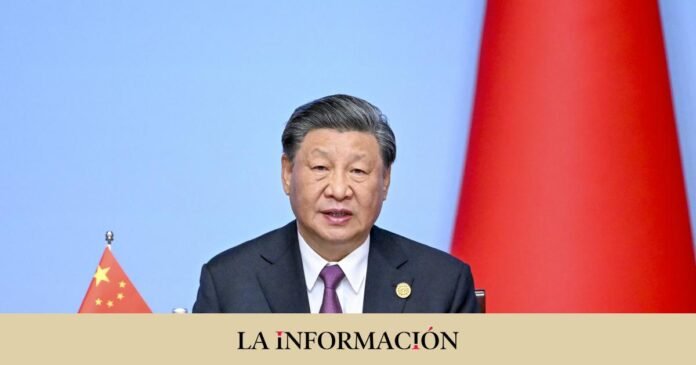Brazil, Russia, India and China (BRIC) began holding summits in 2006 to build bridges and establish common interests among the four. Three years later, South Africa joined the group to give shape to the BRICS acronym. Over time, the economic result of the informal union of emerging countries has been especially beneficial for China and really detrimental for the rest. The diplomacy of the panda that symbolized the political relations of loyalty and friendship with other countries -with gifts or loans from these white mammals with a dark mask- has been nothing more than the hug of a great economic bear.
You have to remember to see it. In 2001, Beijing had achieved its entry into the World Trade Organization (WTO) which required it, among other things, to embrace the free exchange of its currency and the adaptation to certain international reciprocity norms. But China found support and coverage in the BRICS club for its policy of directed capitalism and an anchored semi-flexible exchange rate against the dollar, while at the same time the United States and Europe turned the country into their great factory where they outsourced their production of almost everything.
In just two decades, China has managed to quadruple its share of world exports, from 3% to 13.5%, and its GDP 15 times, from 1.2 to 18 trillion dollars, making it the second largest economic area of the world. ahead of the European Union and after the US What happened to the BRIS without China? It will be curious to see that both Brazil (real) and Russia (rouble) have grown much less than the rest. They entered the club with a GDP of 700,000 million and they have barely doubled it. India, by contrast, has quadrupled its own to $3.2 trillion as it increasingly pushes its relations with the West.
Despite the fact that belonging to the BRICS club seems to benefit its most powerful partner above all else, today more and more emerging countries are knocking on the door of a most heterogeneous superclub in which almost everything fits and which seems united under one objective. . common: de-dollarize. At their summit this week in Johannesburg, the five have given their go-ahead to expanding the informal union. Saudi Arabia, United Arab Emirates, Iran, Egypt, Ethiopia and Argentina will become full members of the associations from January 1, 2024.
What implications it has or what criteria are taken into account are mysteries yet to be solved because it does not seem that until now there have been coherent or understandable rules. And there is its great weak point or the Achilles heel of an association that seems a priori a papier-mâché facade at the service and vassalage of China or Russia, depending on whether the commercial or military field is on the table.
For a long time there has been talk of the possibility of a common currency that will face the dollar, but the reality is that the Chinese yuan is the only one that is really growing and gaining confidence among the BRICS members. Following the game of acronyms, the expansion of the club will force it to be renamed despite the fact that Russia has been against this proposal. The alternatives will not be easy, but ESEIIBACAER may be an evolution of the BRICS that we will meet or not, starting next year. There may be last minute drops. The emerging Argentine in the polls Javier Milei has been in favor of dollarization and you want nothing to do with aligning with China, despite the growing influence that the Asian giant has over its economy.
The concern that the group will challenge the hegemony of the dollar and the euro in the short term seems somewhat exaggerated due to the position of competition and even hostility between the members of the bloc. Brazil, India and South Africa have shown their rejection of the claims of China and Russia that the new club become a challenge to the West, but the incorporation of a Middle Eastern bloc with great economic and energy capacity such as Saudi Arabia and the Emirates ( UAE), together with an agri-food power like Argentina, must sow the alert about the configuration of new world cartels in the image and likeness of OPEC. Of course, respect for human rights and individual freedom in general, or for women in particular, are values that are conspicuous by their absence in this informal club of countries with low-quality democratic regimes.

